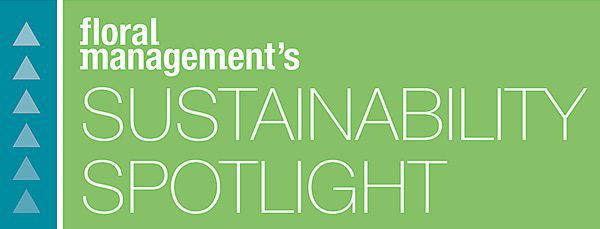Instructions: To send this press release to your local media, copy the text below onto your shop’s letterhead.
CONTACT: (YOUR NAME AND PHONE NUMBER)
New Harvard Study Reveals Factors That Impact
Employee Well Being,Commitment and Productivity
Expert Shares Keys to Building Successful Workplace Relationships
(YOUR CITY AND STATE) – Business executives from the C-suite and HR, to QC and R&D are, by nature, focused on the corporate bottom line. A new trend in our dawning age of social sustainability is that many experts believe more attention should be paid to the dotted line – the one signed when a person commits to employment at a company. New Harvard research validates this approach, affirming that trust and purpose play a significant role in building successful, productive workplaces.
The behavioral research, conducted by a team at Harvard University and Massachusetts General Hospital, identifies the factors most likely to impact 21st century employee well being, commitment and productivity. The researchers found that commitment is largely influenced by one’s sense of purpose, feeling of personal impact and overall trust in the organization. Productivity is largely affected by the quality of human relationships including cooperative, social group moods and interaction.
“The results lead us to conclude that workplaces that provide positive environments that foster interpersonal trust and quality personal relationships create the most committed and productive employees,” says Nancy Etcoff, Ph.D., the lead researcher on the study.
According to business strategist Courtney Anderson, J.D., M.B.A., “Outstanding leadership today means much more than just doing your job. Success is creating an environment that fosters happy, committed, productive team members.”
Anderson explains that reinvigorating workplaces by enhancing trust and employee commitment does not have to be difficult. The biggest challenge, she says, “is making the time to truly change in our overscheduled, instant access competitive work environments. With a little know-how, it can be easy to evolve workplace well being and respond to these compelling research results.”
Some of Anderson’s answers for fostering corporate purpose and trust can be presented in three categories: environment, management and leadership.
- Provide Environmental Support: Great employers manage their physical environments as much as the workload. For example, studies at Rutgers and Texas A&M universities have proven that something as simple as adding flowers to the environment enhances moods, social interaction and on-the-job creativity and productivity. A previous Harvard study confirmed that flowers have an energizing effect on people at work. Other managers succeed by encouraging rewarding opportunities, such as participating in a local cause marketing program or simply having monthly team lunches or team-building exercises.
- Practice “Uneventful Management”: Be ready for crises but, on a daily basis, present yourself to your team and others as prepared, calm and assertive. While there will evidently be unexpected circumstances that require modifications and change, one’s leadership abilities can help instill loyalty and trust. Honest, direct communications are both expected and respected, and you should make time to reach out to your team on a regular basis to keep them informed of progress and issues that they may face down the road.
- Exude Leadership: Employees commit to leaders who demonstrate three qualities: confidence, credibility and flexibility. Engage in substantive self-evaluation, acknowledge your weaknesses and improve where necessary.
The new Harvard research also found that employee happiness is positively and significantly affected by trust and identification with one’s co-workers. Further, the greater the level of purpose one attributes to his or her work correlates to a greater commitment to the organization. The same is true for the level of trust the employer has cultivated among its employees. Productive employees are a result of a winning combination of trust and support.
“Sometimes we get so overwhelmed with complex, capital-intensive innovations that we miss the solutions right in front of us,” says Anderson, who also says that a healthy work environment is a two-way street and encourages employees to turn their cubicles into you-bicles. “Doing little things like adding flowers to your workspace or taking a few extra minutes to get to know your co-workers will make you happier at work.”
21st Century Well Being, Commitment and Productivity
Harvard Medical School and Massachusetts General Hospital
Nancy Etcoff, Ph.D.
Fall/Winter 2006
Nancy Etcoff, Ph.D., of Harvard Medical School and Massachusetts General Hospital, and her research team investigated the factors most likely to impact 21st century employee well being and commitment. They found that elements including a sense of purpose and trust and quality human relationships were most likely to determine a worker’s feelings of well being and productivity.
The research was conducted with cooperation from Cytyc Corporation, a publicly traded company that is a top producer of women’s health screening products and services. Self-reported environmental and emotional surveys were completed online by participants before and after the intervention. The surveys covered a wide variety of topics, including perceived creativity, productivity, morale, happiness/emotions, stress levels, team interaction, social interaction and neatness.
The Home Ecology of FlowersHarvard Medical School and Massachusetts General Hospital
Nancy Etcoff, Ph.D.
Spring/Summer 2006
This study revealed that people felt more compassionate toward others, had less worry and anxiety and felt less depressed when fresh-cut flowers were present in the home. It further showed that living with flowers provided a boost of energy, happiness and enthusiasm at work.
Fifty-four people ages 25-60 were studied using a series of self-reported measures allowing the research team to know where the person was, with whom and what he or she was doing when he/she experienced an emotion, both when flowers were and were not present. Half of the participants received a “control” home décor item, other than flowers, to ensure the study’s validity.
The Impact of Flowers and Plants on Workplace Productivity
Texas A&M University
Roger Ulrich, Ph.D., Behavioral Scientist, Director of the Center for Health Systems and Design, Texas A&M University
Spring/Summer 2003
This study demonstrated that workers’ idea generation, creative performance and problem-solving skills improve substantially in workplace environments that include flowers and plants.
This eight-month study at Texas A&M University explored the link between flowers and plants and workplace productivity. Participants performed creative problem-solving tasks in a variety of common office environments or conditions. The conditions included a workplace with flowers and plants, a setting with sculpture and an environment with no decorative embellishments.
During the study, both women and men demonstrated more innovative thinking, generating more ideas and original solutions to problems in the office environment that included flowers and plants. In these surroundings, men who participated in the study generated 15 percent more ideas. And, while males generated a greater abundance of ideas, females generated more creative, flexible solutions to problems when flowers and plants were present.
Keywords: customizable press releases, public relations


